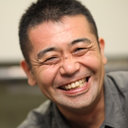[Is a maxillary prosthesis difficult for patients with trismus?].
Ключови думи
Резюме
Of patients with a postoperative maxillary defect, around 30% are though to have trismus to some extent. In these patients, some difficulty in fabricating a maxillary prosthesis is expected. In this study, 54 patients with trismus were compared with a control group to find some proof of difficulty in making a maxillary prosthetics. Fifty-four of trismus less than 20 mm of a mandibular stroke were experienced out of 185 patients with maxillary prosthetics between October 1984 and October 1992. The trismus was divided into 4 groups of less than 5 mm (1 case), 5 mm-10 mm (10 cases), 11 mm-15 mm (19 cases), and 16 mm-20 mm (24 cases). These case were analyzed by in taking an impression failure, average weight of the prosthesis, time needed to complete the prosthesis and some special form of prosthesis. No apparent differences among the 4 groups or with the control group were found. The cause of the difficulty in making a prosthesis for such patients with trismus are suggested not to be simply due to the range of mouth opening but also to the complexed space formed by the dental defect, alveolar bone defect, spreadability of the lip and the cheek, the mandibular stroke and the so-called scar bundle of the cheek next to the defect.


